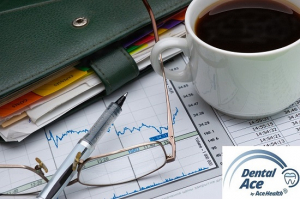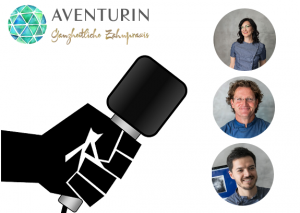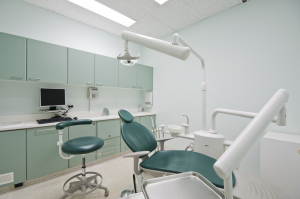The pros and cons of home-made toothpaste
Home-made toothpaste is very popular nowadays and, especially, among environmentally conscious people, who would like to reduce waste. What is toothpaste made of and how? What about it do dentists consider sub-optimal and which composition can harm one's teeth?Index
- The philosophy underlying home-made toothpaste
- What is home-made toothpaste?
- The thing about fluoride …
- Why do dentists warn of home-made toothpaste
- Natural toothbrushes – natural companions of home-made toothpaste
The philosophy underlying home-made toothpaste
The idea behind it is easily explained: normal toothpaste contains a lot of additives – colors, emulsifiers, stabilizers, paraben, fluoride – which are responsible for smell, taste, and other attributes, such as the ability to create foam. However, are these additives really necessary? Especially, "zero waste" supporters, all of whom prefer living the most natural life possible, are trying to kill two birds with one stone with home-made toothpaste: on the one hand, to prevent the pile-up of packaging waste in the form of toothpaste tubes, and, on the other hand, the use of only those ingredients that are absolutely necessary for keeping one's teeth clean. Especially for people, who suffer from sensitive teeth, the identification of alternative cleaning utensils is crucial.
Home-made toothpaste and an organic toothbrush
What is home-made toothpaste?
One can find many different recipes and user reviews for home-made toothpaste in blogs and on YouTube. The following principle applies to most: they do not contain anything that is not edible and usually contain coconut oil and natron. Coconut oil is applied due to its antibacterial effects against fungus which also reduce the likelihood of tooth decay and gum diseases. Natron, on the other hand, works as an abrasives and ever so slightly lightens the color of teeth. Other possible ingredients are, for example, Xylitol, whiting, peppermint oil, or herbs like cinnamon, thyme, or chamomile (mainly to enhance the taste). For production, coconut oil is heated up and mixed with natron afterwards. To cleanly and hygienically extract and apply toothpaste, it is better to use a spatula instead of a finger or a toothbrush. At room temperature, home-made toothpaste is usually a little harder than normal toothpaste, but it softens up once it is applied inside the mouth. Contrary to normal toothpaste, home-made toothpaste does not create any foam when used. In terms of proper use, it is recommended to brush one's teeth with home-made toothpaste for the same amount of time as with normal toothpaste.The thing about fluoride …
Supporters of natural and alternative medicine often criticize the fact that normal toothpaste contains fluoride because they doubt its usefulness. The possibility of overdosing on fluoride as a result of accidentally swallowing toothpaste is considered a high risk, especially for children, because excessive amounts of fluoride can be harmful to bones and teeth. Dentists and dental associations, on the other hand, see fluoride as a crucial part of toothpastes because it creates a protective layer on top of teeth and thereby prevents the acids and other harmful substances from causing tooth decay. For toothpastes, there are also thresholds for how high the fluoride content may be to avoid overdosing.Why do dentists warn of home-made toothpaste?
A good toothpaste has to fulfill several objectives, including:- Remove dental plaque
- Prevent tooth decay
- Prevent bleeding gums
- Combat bad breath
Given this relatively extensive list, many dentists highly doubt that it is possible to produce a home-made toothpaste in one's kitchen that can successfully cover all of these items. In fact, according to many dental associations, the lack of fluoride in home-made toothpastes is actually unfavorable from the perspective of tooth decay prevention. On top of that comes the danger of increased abrasion of dental enamel through abrasives like natron or whiting: When included in toothpaste, it is important that both of these abrasives have a uniform kernel size and are included in consistent concentrations, which is difficult to achieve for home-made toothpaste. Therefore, dentists recommend to not exclusively use home-made toothpaste – after all, there are also organic toothpaste and dental care tabs as alternatives. Should one want to give home-made toothpaste a try, it is always good to go to regular dental check-ups to see if said toothpaste does not do more harm than good to the teeth.

Organic option for dental care
Natural toothbrushes are natural companions of home-made toothpastes
Environmentally-friendly people take the question about which kind of toothbrush is the better one – an electric one or a conventional one – one step further: Isn't a toothbrush made out of organic materials the best? Again, dentists generally recommend against the use of such organic toothbrushes for several reasons: So-called natural bristles have a hollow cavity that can serve as a breeding ground for bacteria and fungi and that can easily break and cause irritations due to sharp-edged breaking points. Alternative toothbrushes made out of Miswak (also called toothbrush tree) branches are, in turn, sub-optimal for the cleaning of spaces in between teeth, which is not only unhygienic, but can also allow for bacteria, viruses, and fungi to take hold and cause dental problems. Therefore, dentists recommend to people, who are looking for alternatives to plastic toothbrushes, to opt for models made out of recycled or biological plastic.In the meantime, we would love to hear from you – please leave any thoughts and feedback in the comment box below and subscribe to our blog via a free subscription through our online portal at any time.


